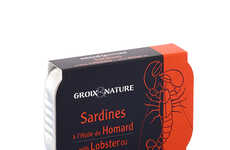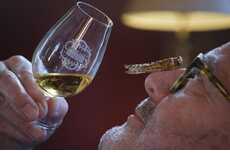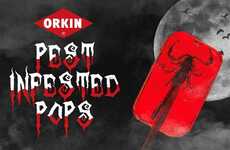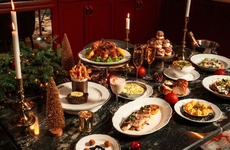
The Ortolan
The ortolan is a copper-breasted bird that migrates from Africa to Europe. Thought to represent the soul of France, it is also a bite-size delicacy: a songbird roasted and gulped down whole. According to tradition, the French shroud their head in a napkin to eat ortolan, which is killed by being drowned in armagnac, plucked and roasted with its yellow skin and skeleton intact. Aficionados say it is satisfyingly crunchy, with a subtle hazelnutty taste.
Ortolan was on the menu at late French President Francois Mitterrand's legendary "last supper" on New Year's Eve, 1995. Though cancer had diminished his appetite, Mitterrand saved room for the piece de resistance, the roasted ortolan, downing the 55 gram bird, bones and all. He died eight days later.
However, this gourmand's delight is now an endangered and illicit species. A 1998 law banned hunting the ortolan in France because of its endangered status. Ortolan hunters - who trap the birds alive and keep them in cages for several weeks to fatten them up - face fines of up to 9,000 euros and six months in prison, if caught and convicted.
However, hunters still kill as many as 30,000 ortolans each year in France alone, contributing to an estimated 30 per cent decline in their numbers over the past decade. Environmentalists complain the law is rarely enforced and blame the poaching on continued demand for roasted ortolan. No longer on restaurant menus in France because of the ban, ortolan is eaten at home or served secretly to special restaurant clients. A single bird can fetch up to $US150 on the black market.
Fans of the dish have decried the increased inspections, saying they threaten a uniquely French culinary tradition. And you thought frogs legs and snails were odd.
Ortolan was on the menu at late French President Francois Mitterrand's legendary "last supper" on New Year's Eve, 1995. Though cancer had diminished his appetite, Mitterrand saved room for the piece de resistance, the roasted ortolan, downing the 55 gram bird, bones and all. He died eight days later.
However, this gourmand's delight is now an endangered and illicit species. A 1998 law banned hunting the ortolan in France because of its endangered status. Ortolan hunters - who trap the birds alive and keep them in cages for several weeks to fatten them up - face fines of up to 9,000 euros and six months in prison, if caught and convicted.
However, hunters still kill as many as 30,000 ortolans each year in France alone, contributing to an estimated 30 per cent decline in their numbers over the past decade. Environmentalists complain the law is rarely enforced and blame the poaching on continued demand for roasted ortolan. No longer on restaurant menus in France because of the ban, ortolan is eaten at home or served secretly to special restaurant clients. A single bird can fetch up to $US150 on the black market.
Fans of the dish have decried the increased inspections, saying they threaten a uniquely French culinary tradition. And you thought frogs legs and snails were odd.
Trend Themes
1. Endangered Delicacies - The decline of the ortolan bird highlights the trend of endangered delicacies, creating opportunities for sustainable alternatives or innovative substitutes.
2. Culinary Traditions - The controversial French tradition of eating ortolan demonstrates the trend of preserving cultural gastronomic practices, leading to potential innovations in ethical dining experiences.
3. Black Market Gourmet - The demand for prohibited ortolan birds on the black market signifies the trend of underground gourmet trade, presenting opportunities for legal, high-end culinary experiences.
Industry Implications
1. Sustainable Food Production - The decline of the ortolan bird necessitates advancements in sustainable food production methods to address the demand for endangered delicacies without causing harm to species.
2. Ethical Dining Experiences - The controversy surrounding ortolan consumption creates a need for businesses to develop ethical dining experiences that respect cultural traditions while ensuring the conservation of endangered species.
3. Luxury Culinary Experiences - The presence of ortolan birds on the black market presents an opportunity for the luxury food industry to provide legal, exclusive culinary experiences that are in high demand.
2.9
Score
Popularity
Activity
Freshness























